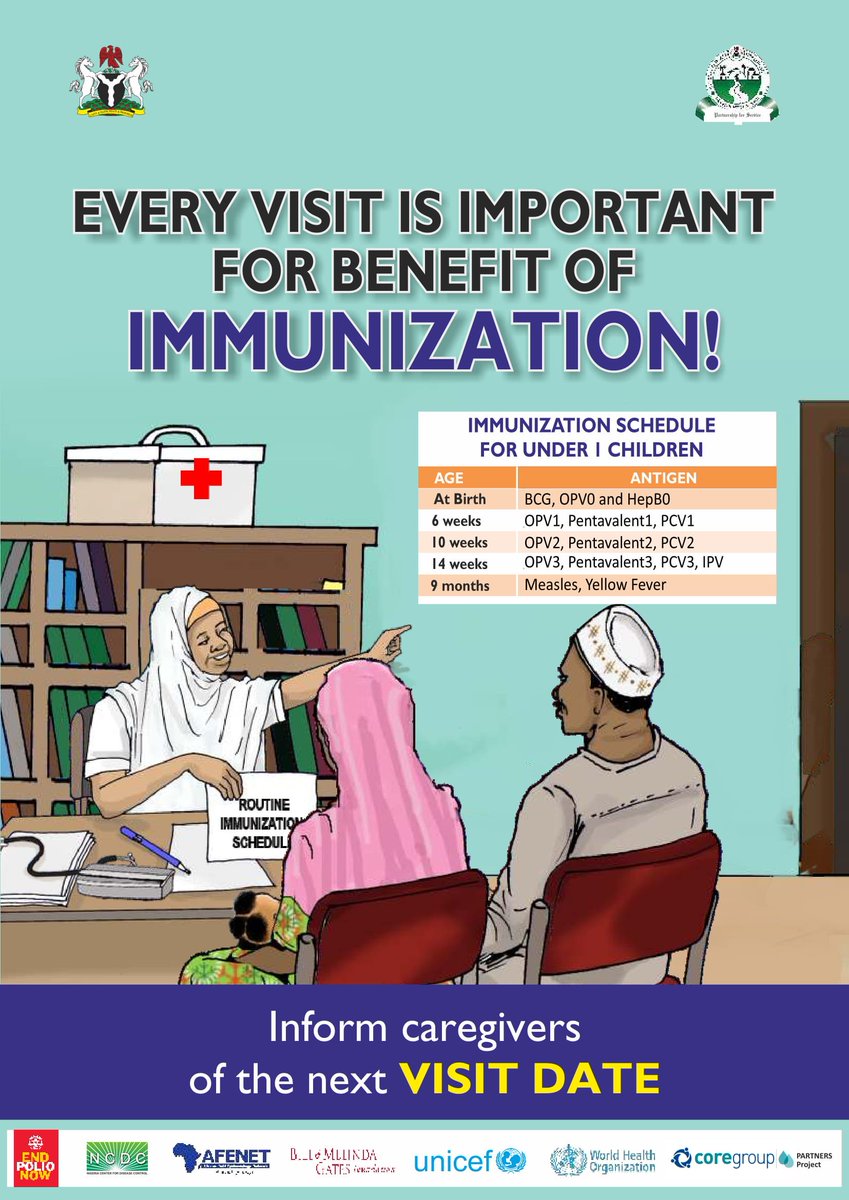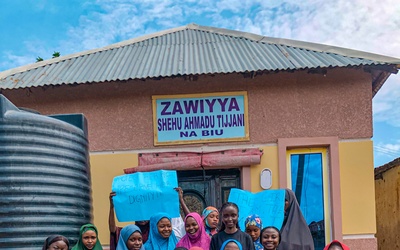 There are many hurdles to the successful immunization of
children in Nigeria. But before one talks about these difficulties, one must
first understand the pertinence of immunization.
There are many hurdles to the successful immunization of
children in Nigeria. But before one talks about these difficulties, one must
first understand the pertinence of immunization.
Immunization helps fortify the immune system against infectious disease by the process of administration of a vaccine. Vaccination plays a crucial role in prevention of infants, children and teens from harmful diseases. Vaccine-preventable diseases can be very deadly if ignored and left untreated. The diseases that children are prone to if not vaccinated includes polio, hepatitis B, hepatitis A, HIB (Haemophilus influenzae B), chicken pox, pneumococcal disease, rotavirus, rubella, measles, whooping cough (pertussis), mumps, diphtheria, tetanus and flu (influenza). These diseases can lead to amputation of an arm or leg, paralysis of the limbs, hearing loss, convulsion, brain damage and even death.
According to the 2016-2017 Multiple Indicator Cluster Survey, 4.3 million of the 7 million children born in Nigeria every year fail to get fully vaccinated before their first birthday. We can identify many contributing factors that prevent children from getting vaccinated as at when due; but prominent among these are religious and ethnic bias. Some of our religion as a nation does not encourage the vaccination of our children. This singular act has brought about a major setback in the successful immunization campaign in Nigeria. Base on the results of a U-Report poll conducted on the 13th of April 2018, 30% of the respondents pointed out, that children are sometimes routinely immunized in their communities. This is the background problem of immunization in Nigeria.
For immunization to be totally successful in Nigeria, agencies and organizations must work in synergy with community leaders and clerics in various communities. We must start by identifying those areas where positive response to immunization has been very low, and educate people on the benefits of immunization and the dire consequences of not getting their subjects vaccinated. Immunization should be every Nigerian child's basic right and Nigeria should make enough effort to keep her citizens protected from these deadly contagious diseases. The wealth of a nation is in the health of her citizens.
Vaccines are safe to the prevention of the spread of diseases from of our society, and at such should be encouraged, made available and administered timely.








